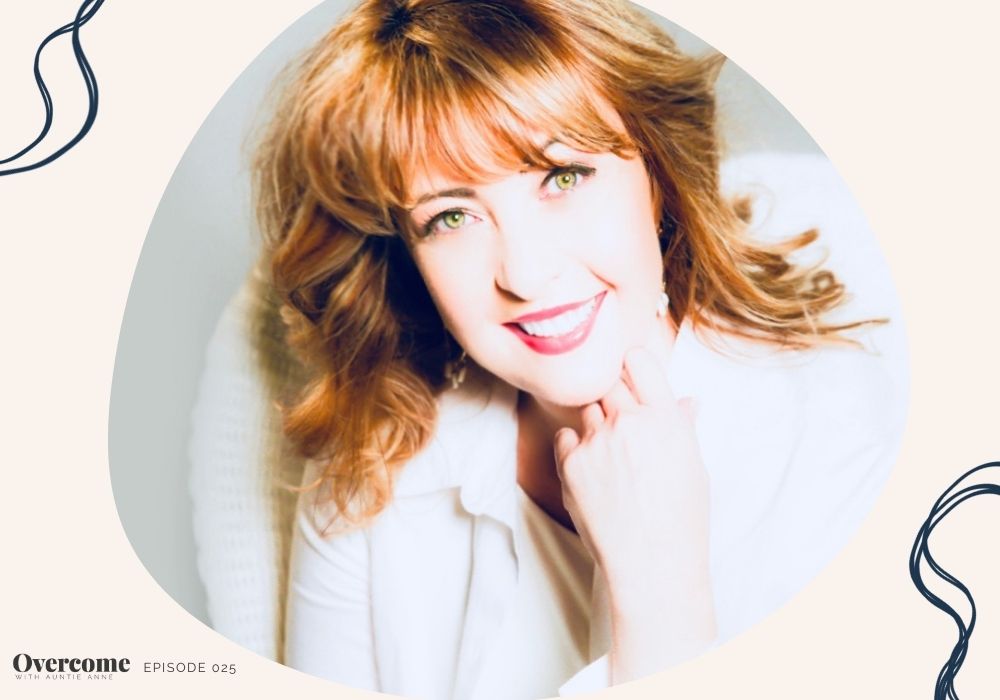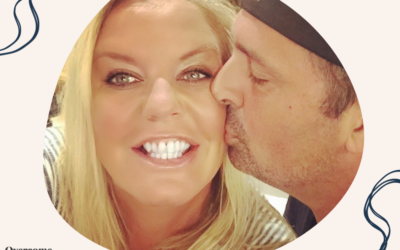Isik Abla grew up in what she describes as a culture of shame. As a young girl, she was put down and made to feel worthless because of her gender and fell victim to physical and verbal abuse. This shame took root and created chains that held her in captivity for years, keeping her from experiencing true freedom.
This week on Overcome with Auntie Anne, I’m chatting with Isik Abla about shame — how it’s birthed, how it binds us and keeps us from freedom, and how we can ultimately overcome it. During our talk, Isik beautifully weaves her own story with what many of us experience and shows us how to be overcomers in the process.
To hear our entire conversation, listen to the podcast. Or keep reading below for some of the highlights.
A culture of shame
Isik describes shame as “very tricky” and “very sneaky,” something that we may not even be aware we’re dealing with.
For her, shame started in her childhood around her gender. She says she was brainwashed into thinking she wasn’t good enough as a female — as a young girl and a woman. And this made her ashamed to be a girl.
As she says, shame and failure are closely linked, and for her, the failures were everywhere: in business, in her walk as a Muslim girl and with Allah, in marriages, in parenting. “And,” she says, “those failures result[ed] [in] an open door to shame.”
This shame, Isik says, eventually turns into self-hatred. We embrace the shame and the notion that we are bad and aren’t good enough. She says we become disappointed in ourselves because we feel we’re constantly disappointing others.
The origin of shame
Isik says that shame begins with an event. So if we’re experiencing shame in our life, the first thing we have to do is identify the event. In the culture she was raised in, that event was being a girl. Because she was a girl, she was a failure.
After the event, a voice interprets the event that we must learn to recognize. It could be another person, the enemy, or ourselves and what we say about the event. The interpretation for Isik was when she was told, “You are not good enough for anything. You are stupid, and you are ugly.”
As a young child, she tried to prove that she wasn’t who they said she was. For instance, she wanted to prove to her father that she wasn’t stupid like she’d been told but was, in fact, smart. So she became a bookworm and would buy secondhand books. She started reading one book a day, 360 books a year, just to prove to her father that she was actually smart.
Even though her father eventually said, “I told you you are stupid so you would prove to me that you are smart,” (a sort of reverse psychology), and even though Isik was very educated, she still believed the lie that she was stupid. Those criticisms that she’d received stayed with her even though she tried to prove them wrong.
She went from a childhood of absolute shame to constantly feeling like she was never good enough.
The consequences of shame
It got to the point with Isik, where the approvals and affirmations of others were never enough.
All of this caused her to isolate, because, as she says, “If you are out there, everybody is going to see how stupid you are … what a failure you are, and you think it is so visible to everybody.”
The consequences of this sort of thinking are extensive. Isik says it develops fear, panic attacks, self-hatred, and settling. Even with relationships, Isik’s thinking became skewed. Because she wasn’t smart enough or good enough, she felt she had no place in choosing a spouse for herself. Instead, she felt any man could just come to choose her and do anything he wanted to her because that’s what she deserved.
This led her into three different marriages. Her first marriage was with a radical Muslim.
Her second was with a drug dealer. And her third was with an ex-gang member.
Isik’s first husband beat her. At one point, he put a knife to her throat and told her to jump off of a building. Because of this, Isik decided to flee for her life and came to America. But coming to America didn’t break the “chains of shame” that still held her in bondage.
Identifying her shame
Eventually, Isik began to face the darkness that she was going through. She says that God started putting people in her life that allowed her to see the contrasts between her life and their lives. “And I started looking at their freedom and looking at myself and started identifying my chains.”
She says, “I wanted to be like them, but I didn’t know how.” And she continues, “I didn’t even know that … the difference was freedom versus the captivity.” Isik wanted the freedom that she saw in others and became envious of what they had.
She eventually gave her life to Christ and, as she puts it, “became very intentional.” She realized that all that was within her, “every dirt, everything that [was] disgusting and hiding within,” needed to be exposed. And Isik was determined to be brave enough to face it so she could break free from the chains that held her captive.
But freedom didn’t come easily at first. Even though Isik had repented of past sins and was now “free in Christ,” something was still holding her back.
She had had two abortions earlier in life, and every time she heard about a murder, she would hear a little voice in her head say, “You are a murderer.” She was often tormented with this, and one day came to the point where she couldn’t take it anymore and broke down. She told God about her torment and said that even though she’d repented for what she’d done, she didn’t know how to receive freedom.
God said to her, “You need to forgive yourself. I forgave you, but you haven’t forgiven yourself.” For Isik, this revelation made her realize she was still living in shame. She could talk about every other part of her story, but she was still ashamed when it came to the abortions and would never mention them.
She realized that by not forgiving herself, she was, in a sense, trying to self-medicate. She was making herself suffer, thinking that the suffering she was experiencing was in some way paying a debt for her wrongdoing.
But in this moment of revelation, Isik says she had a genuine love for herself. She says it was almost an out-of-body experience. “I was outside and looking at myself and having compassion and hugging myself and telling myself, ‘I am forgiven, and all is well, and I am free.’”
This moment changed Isik, and she became very transparent and vulnerable about everything in her life. She didn’t try and hide things from people anymore. As she says, “You will never find dirty laundry about me that I didn’t tell you.” Isik was no longer hiding.
And the shame was no longer controlling her. By being vulnerable and transparent, she began to find her freedom. She exposed her shame and broke the chains of shame that once held her by confessing.
Because shame is “familiar” to Isik, the one thing that keeps rearing its ugly head, it tries to creep back into her life. But by forgiving herself and exposing it through confession to others, she’s able to live in freedom.
Helping others find their freedom
Today, Isik describes herself as an overcomer and a freedom warrior who is no longer in captivity. And she helps other people overcome the captivity they find themselves in.
She is an ordained minister in full-time ministry and says, “I don’t minister to people with my perfections. I minister to them with my imperfections.”
She’s attended Ambassadors Commission School of Ministry and Yale and Harvard for leadership training. Her programs are broadcast in over 200 countries on six continents and in multiple languages to more than 700 million people.
She also describes herself as a fisherman in the sense that Jesus has called us to be fishers of men. “I fish, and through social media, through broadcasts, through my daily life, I just fish. And then I do discipleship. I clean up the fish.” She helps lead people to Christ and brings them into this overcoming life that she and I have experienced — into a life of true freedom.
If you want to learn more about Isik, you can go to her website at isikabla.com or find her on Facebook.
She also has a handful of books on Amazon that I invite you to check out, including Be Happy and Free Today! and Cast Out Demons and Slay Your Giants.






